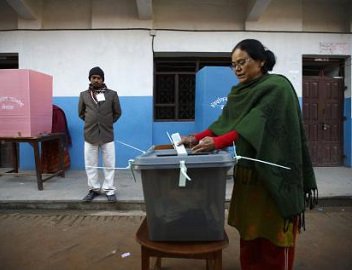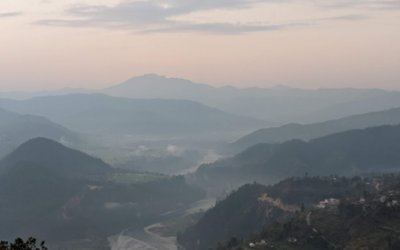
A year has passed since the agreement. Although the country saw the successful completion of the second constituent assembly elections, the future of local elections remains undecided.
Nepal’s local bodies, comprising of 75 district development committees, 58 municipalities and about 4,000 village development committees have been without elected local representatives for more than a decade now. The last time Nepali voters elected a local representative was in 1997. After the completion of its tenure in 2002, local bodies are being run by bureaucrats through an ad hoc system called ‘all-party mechanism’.
The absence of locally elected representatives has resulted in multiple consequences. Major development activities in districts have been stalled and no new projects have been undertaken. Many of the projects, which were initiated by the last elected body, are yet to receive a go ahead. ‘We were told about the construction of a road in our village almost 15 years ago’, says a local in Rautahat. ‘The construction never took place though’, he shares his grief. Locals from many other villages share the same plight.
Thanks to the system of ‘all party mechanism’, the bodies have become a breeding ground for corruption. Lack of transparency and accountability amongst the bureaucrats has resulted in huge misuse of public funds. As a consequence the service delivery has been seriously affected. Says one local from Illam, ‘Most of these bureaucrats don’t even live in the villages. They collect their salaries without working. We are left with no one to attend to’.
Although the locals are more hopeful now with the new government in place there has been no visible preparedness yet for the elections notwithstanding the claims of deputy prime minister Prakash Man Singh who holds the crucial local development portfolio. Said Singh, the preparations are already underway for the elections.
The confident government under the leadership of Prime Minister Sushil Koirala appears determined that the local body election would be held within the stated time. ‘I agree that lack of elected representatives at local bodies has created huge corruption’ said the PM Koirala earlier this week. He said that his government was preparing to hold the government within May. The largest coalition partner CPN UML leader and deputy Prime Minister Bam Dev Gautam has also reiterated that holding the local bodies election within six months after formation of the new government would be one of the top priorities for the newly formed government.
There are, however, little evidences to back up the government leaders’ words. The Election Commission says the political parties have not yet reached a consensus and is yet to receive a go-ahead. Election Commisioner Dolakh Bahadur Gurung says, ‘If the government wants the elections in May, they should amend the necessary laws and decide the date by mid March. Failure to do so will make the elections almost impossible in May.’ The Election Commission has time and again said that it will require at least two and a half months of homework to hold the elections successfully.
There are also serious doubts whether the government, weakened by bitter infighting and mistrust, will actually be able to hold deliver as promised. And the opposition parties are not too keen either about the local elections. In view of the recent humiliating loss in the CA elections, the main opposition UCPN (Maoist) is not in favor of holding the elections anytime soon. The party says, the promulgation of the new constitution should be the primary focus and that the local elections are only a secondary issue. The Madhesi parties on the other hand have declared that holding the local elections before finalizing on the federal structure can be a hindrance to the process of federalism. Some of them have even threatened to disrupt the local polls if the government went ahead with the poll plans.
Experts however warn of dire consequences against further delay in holding the elections for the local bodies. They say, longer the local elections are put off, worse will be the impact on democratic political development that is rooted in community’. International donors agree. They have been mounting pressure on the government and the parties. They feel that they have a stake as they have been providing assistance worth Rs 50 billion for five years in local projects.
- Ukrainian Crisis And The World (Dis)Order
- Apr 22, 2022
- China’s Cautious Steps In The Graveyard Of Empires
- Aug 18, 2021
- Foreign Aid On The Fence!
- Aug 08, 2021
- Communist Party of China centenary celebrations Reading between the lips
- Jul 14, 2021
- Second Wave Of Covid-19 In India: Deadly Blow To The Economy
- Jun 23, 2021

















